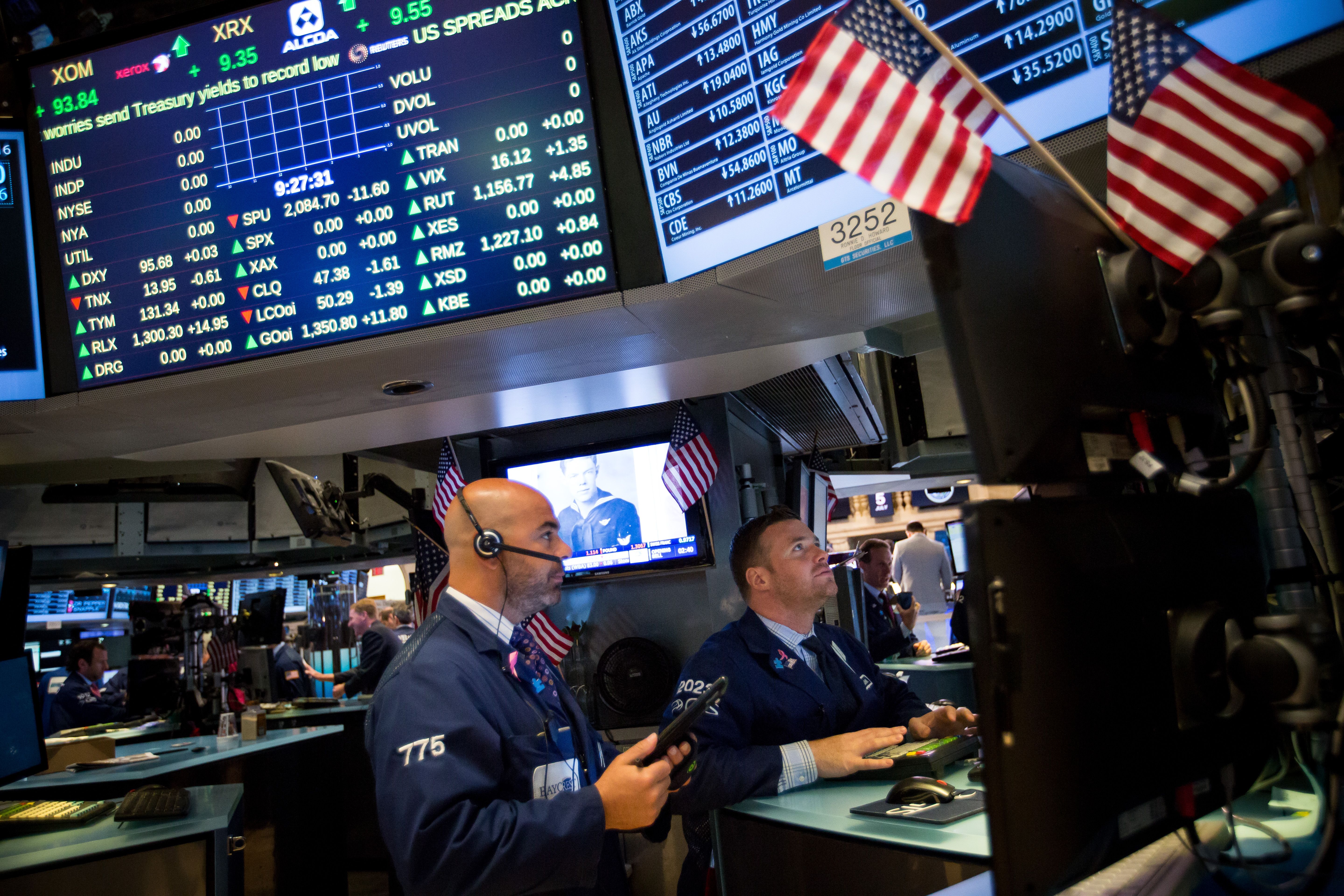Global equity index leaped to a record high and the dollar gained on Monday,September 11, spurred by relief that Hurricane Irma weakened to a tropical storm and that North Korea’s anniversary celebrations on the weekend passed without a new missile test.
MSCI’s all country world stock index .MIWD00000PUS, which tracks more than 2,400 stocks in 47 countries, hit its latest peak as Europe’s insurers rose more than 2 percent .SXIP on hopes Irma’s damage would not prove as costly as feared.
The all-country index is up 14.6 percent year-to-date.
Shares on Wall Street jumped about 1 percent, with the benchmark S&P 500 index less than two-tenths of a percentage point away from record territory.
The Dow Jones Industrial Average .DJI rose 262.91 points, or 1.21 percent, to 22,060.7, the S&P 500 .SPX gained 26.08 points, or 1.06 percent, to 2,487.51 and the Nasdaq Composite .IXIC added 67.14 points, or 1.06 percent, to 6,427.33.
All the 11 major S&P sectors higher, led by gains in technology and financial stocks.
Shares of U.S. and European insurers jumped, with companies particularly exposed to Florida posting sharp gains as the losses from Irma were seen as being less severe than feared.
Shares of Florida insurers Heritage Insurance Holdings Inc <HRTG.N,> HCI Group Inc (HCI.N) and Universal Insurance Holdings Inc (UVE.N) all rose about 14 percent.
In Europe, shares of reinsurers Swiss Re AG (SRENH.S) and Scor SE (SCOR.PA) rose 3 percent or more, and insurers helped drive stock indexes in the region.
The pan-European FTSEurofirst 300 index .FTEU3 rose 1.05 percent to close at 1,491.19 and MSCI’s gauge of global stocks .MIWD00000PUS gained 0.81 percent. MSCI’s emerging markets index .MSCIEF rose 0.67 percent.
The relief over North Korea and a weaker yen JPY= helped the stock market in Tokyo .N225 to its best session since June.
Investors are so focused on the hurricane’s fallout and the Federal Reserve’s potential monetary tightening that they’re missing the enormous boost the weaker dollar and low interest rates will give the U.S. economy, said Jim Paulsen, chief investment strategist at the Leuthold Group in Minneapolis.
“We are massively stimulating this economy that’s already doing pretty well,” Paulsen said. “That’s likely to accelerate an already-good economy even further the next 12 months.”
The dollar index .DXY, which tracks the greenback against a basket of six major currencies, was 0.56 percent higher at 91.867.
The index had hit a more than 2-1/2-year low of 91.011 on Friday as investors fretted about the short-term impact of Irma on the U.S. economy and simmering tensions with North Korea.
The euro EUR= fell 0.57 percent to $1.1963 against the greenback, while the Japanese yen weakened 1.36 percent at 109.30 per dollar.
Germany’s benchmark 10-year bond yield pulled further away from recent 2-1/2 month lows and yields on benchmark U.S. Treasury debt rose from 10-month lows.
The 10-year U.S. Treasury note US10YT=RR last fell 17/32 in price to yield 2.1218 percent, up from 2.061 percent late on Friday.
German Bunds DE10YT=RR last fell 2 basis points in price to yield 0.336 percent.
Oil prices rose as the upward pressure from U.S. refinery restarts and Saudi talks to extend production cuts outweighed demand fears driven by Irma’s continued pounding of Florida.













